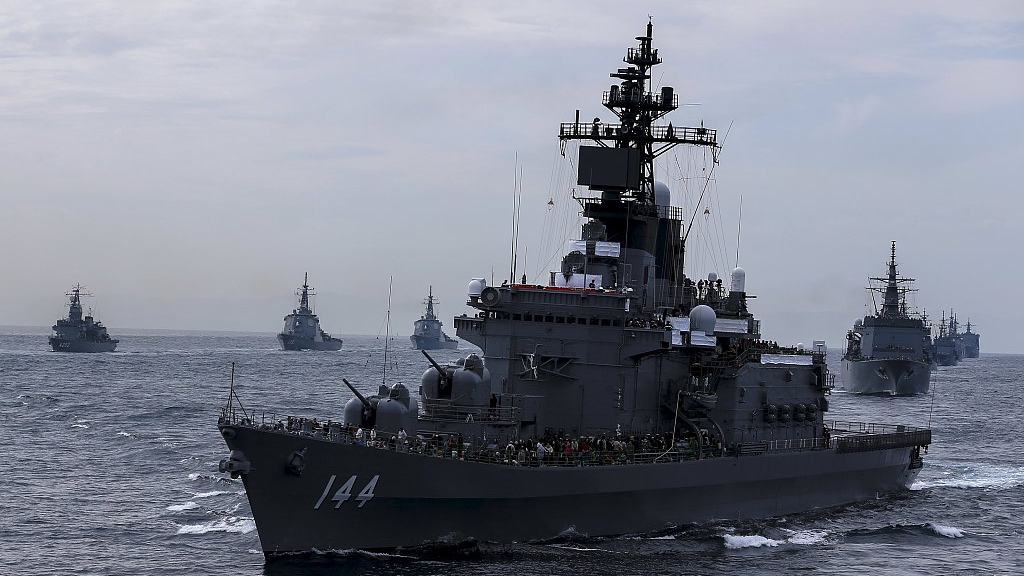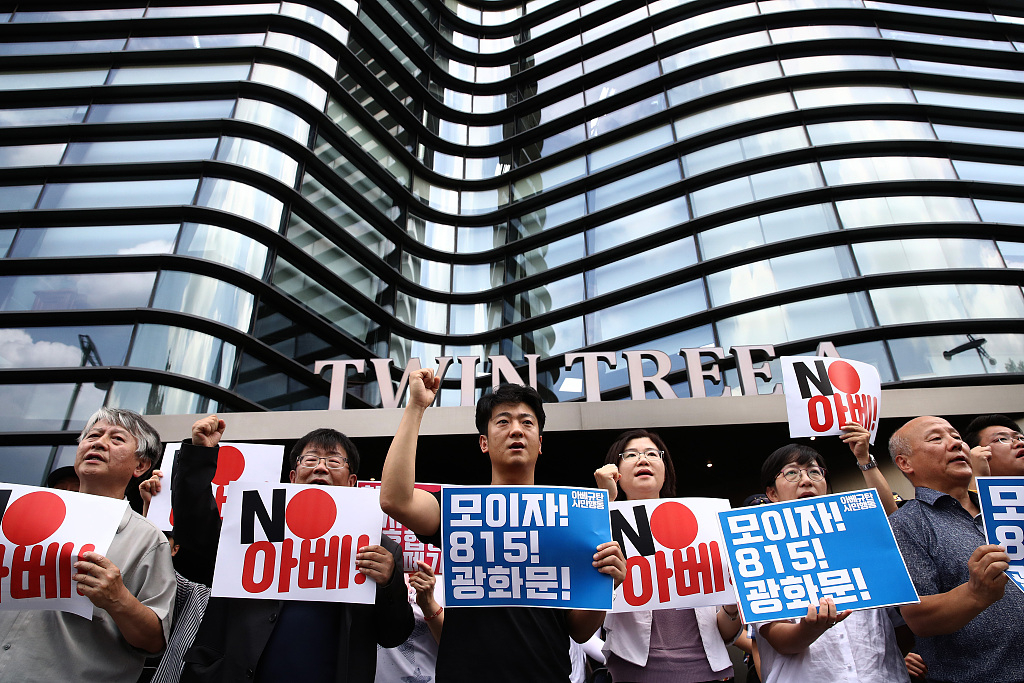
Editor's note: Huang Jiyuan is an opinion editor with CGTN Digital. This article is based on his interview with Wang Fudong, assistant research professor of Korean Peninsula Studies at the China Institutes of Contemporary International Relations. The article does not necessarily reflect the views of CGTN.
On September 26, Japan released its annual defense review in which the strategic positions of both China and the Republic of Korea (ROK) have undergone major changes. China, for the first time, is seen as the main security threat to Japan, replacing the Democratic People's Republic of Korea (DPRK). South Korea (ROK), previously the second closest security ally to Japan, is now the fourth, falling behind Australia, India and ASEAN.
To Wang Fudong, assistant research professor at the China Institutes of Contemporary International Relations, it is unsurprising for Japan to change China's status. From a geo-strategic standpoint, "Japan in recent years has seen China as a major threat to maintaining its leading position in the region. Therefore, the main strategic objective of Japan is to contain China." And with the rapid modernization of the Chinese military and the advancement in its capabilities, Wang believes Japan is growing wary of China's rise by the day.
But, given that the DPRK has fired several projectiles into waters near Japan this year, wouldn't it be more logical to conclude that the DPRK poses a greater risk? Wang recognizes that, despite its actions, the DPRK's military capability would have far less impact on Japan than China's would.
Then why has Japan downgraded the ROK's status in its defense review? If Japan is really wary of China's strength, wouldn't it be natural for it to maintain its relationship with one of its closest security allies? "The ROK's change in status is directly related to the tension between the ROK and Japan," Wang says. But, he suggests that the change was already foreshadowed.

Tension between Japan and South Korea (ROK) has been escalating for some time now. The picture shows people protesting Japan's removal of South Korea from its "whitelist" of favored export partners in front of the Japanese embassy in Seoul, South Korea, August 2, 2019. /VCG Photo
Tension between Japan and South Korea (ROK) has been escalating for some time now. The picture shows people protesting Japan's removal of South Korea from its "whitelist" of favored export partners in front of the Japanese embassy in Seoul, South Korea, August 2, 2019. /VCG Photo
In its 2018 Defense White Paper published in January, the ROK already reshuffled its military-to-military exchange priorities. Previously, of all the ROK's neighbors, military exchanges with Japan received the highest status. China came in second, with Russia in third place. And cooperation between the ROK and Japan on the DPRK's nuclear and missile problem was specifically stated.
However, in the 2018 white paper, China became the ROK's top priority. And Japan fell to second place. The statement about cooperation between the ROK and Japan on the DPRK was erased as well.
"Japan downgrading the ROK's status in the defense review reflects that, right now, the two countries lack a common understanding on security cooperation. And the ROK doesn't try to contain China and the DPRK like Japan does," Wang said.
Chinese Foreign Minister Wang Yi met with the foreign ministers of both countries not long ago to try to foster cooperation. Will Japan's action influence cooperation in the region?
Yes, but it would be limited. According to Wang Fudong, Japan's downgrading of the ROK will definitely have a negative impact in the trilateral cooperation between Japan, the ROK, and China. "It took China and Japan years of hard work to ease the tension between the two countries. Seeing China as the main security threat is not conducive to good relationships in the region," he said. "And Japan's downgrades of the ROK will pose a new threat to the Japan-ROK relationship, especially after the warplane incident in July over the Dokdo Islands (or Takeshima Islands in Japan)." Therefore, the trilateral relationship will no doubt be impacted by Japan's actions.
But, one shouldn't be pessimistic about it. Wang argues that the defense annual review is only a security-related document. China, Japan, and the ROK still have crucial needs in cooperating in political and economic realms. And regional cooperation shouldn't be stalled by this.
(If you want to contribute and have specific expertise, please contact us at opinions@cgtn.com.)